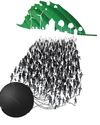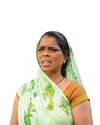
UNBALANCED" IS how the Global South would U describe the tone of the UN's recent mid-year climate conference in Bonn, Germany. For developing countries, the 10-day meet that started on June 6 was a frustrating one as rich nations blocked or diluted almost every attempt to include discussions on issues such as adaptation and loss and damage.
The aim of the Bonn conference, also called the 56th session of the United Nations Framework Convention on Climate Change (UNFCCC), was to take forward the action items announced at the 26th Conference of Parties (COP26) to the UNFCCC in Glasgow, UK, last November, and advance some of the more technical and operational discussions related to implementation of provisions under the Paris Agreement, 2015, in time for COP27 scheduled this November in Sharm el Shaikh, Egypt. That is why the conference was led by two technical committees-the Subsidiary Body for Scientific and Technological Advice and the Subsidiary Body for Implementation. The meet was also the starting point for technical discussions on "the global stocktake", a formal assessment of progress towards goals under the Paris Agreement. But tensions between the developed and developing worlds began even before the conference commenced.
この記事は Down To Earth の July 16, 2022 版に掲載されています。
7 日間の Magzter GOLD 無料トライアルを開始して、何千もの厳選されたプレミアム ストーリー、9,000 以上の雑誌や新聞にアクセスしてください。
すでに購読者です ? サインイン
この記事は Down To Earth の July 16, 2022 版に掲載されています。
7 日間の Magzter GOLD 無料トライアルを開始して、何千もの厳選されたプレミアム ストーリー、9,000 以上の雑誌や新聞にアクセスしてください。
すでに購読者です? サインイン

On shaky ground
Despite reporting net gains in green cover, the latest forest survey shows degradation of natural forests, particularly in ecologically sensitive hotspots

Burden of proof
The government's drive for e-KYC verification to ensure rightful targeting of beneficiaries has proved exclusionary for many

Rupee slide impacts agricultural trade
THE UNION Cabinet on January 1, 2025, approved the extension of a subsidy package of ₹3,500 per tonne on di-ammonium phosphate (DAP) for companies.

THE 500 GW SWITCH OVER
Coal is the king of energy at present. India needs to dislodge it with clean energy for an equitable green transition

MANIFESTING 500 GW
Ensure that renewable energy is available round the clock.Establish a viable market and reward those who take lead

Lifting a curse
How Gangabai Rajput helped her water-scarce village in Madhya Pradesh let go of superstition and revive an ancient waterbody

HOLD THEM SACRED
The Supreme Court has recommended that the Union government create a comprehensive policy for the governance and management of sacred groves across the country

REPORT CARD 2024
Coal is still the king in terms of electricity generation. But new renewables, mainly solar power, have shown an impressive growth

'India a laboratory for seismologists'
India is no stranger to earthquakes. In recent memory, Latur and Bhuj districts in Maharashtra and Gujarat witnessed devastating tremors in 2003 and 2001 respectively. Such quakes leave clues that can aid preparations for future events, say seismologists KUSALA RAJENDRAN, professor, Indian Institute of Science, and CP RAJENDRAN, adjunct professor, National Institute of Advanced Studies. The Rumbling Earth-The Story of Indian Earthquakes, captures their work on historical as well as recent quakes. In an interview with ROHINI KRISHNAMURTHY, they discuss the science of earthquakes, why the Himalayas are due for a huge event and why prediction remains a challenge. Excerpts:

Capturing Siang
As India pushes for a mega-dam on the Siang river to counter China's upstream projects, the Adi tribal community of Arunachal Pradesh fears losing ancestral land